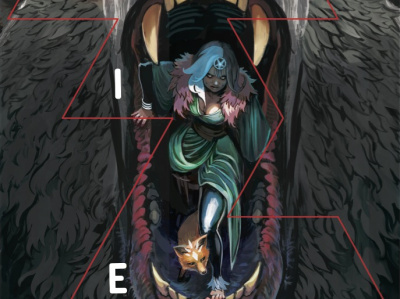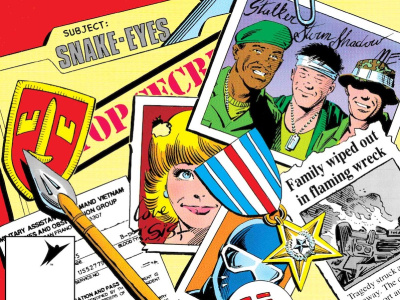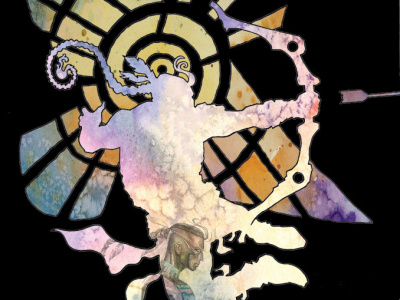
Walking Dead creator Robert Kirkman is being sued by longtime collaborator and childhood friend Michael Anthony (“Tony”) Moore, who earned two Eisner Awards for his work on The Walking Dead and says he was duped into signing away his interest in the lucrative zombie property in 2005 when Kirkman came to him and told him there was a big TV deal on the table, but that the deal couldn’t be completed unless Moore assigned all of his interest in The Walking Dead and other works to Kirkman. In return for signing the agreement Moore was to receive 60% of the comic book publishing net proceeds for The Walking Dead as well the comic proceeds for a project known as Brit, as well as 20% of potential motion picture rights for The Walking Dead and Brit, plus 50% of the motion picture net proceeds from Battle Pope.
According to The Hollywood Reporter, Moore contends that “he hasn’t received much revenue from Kirkman or his company, and has never been allowed access to the company’s books and records in accordance with the reporting obligations of the agreement.”
Moore did indeed work with Kirkman on Battle Pope and The Walking Dead. He began as the chief interior artist on The Walking Dead, and though he ceased penciling the interiors of the comic after issue six, he did continue to create covers for the series through issue #24, and he also provided the covers for the first four collected volumes of The Walking Dead. Moore received an Eisner Award in 2004 for his work on The Walking Dead and another Eisner as “Best Cover Artist” for his work on TWD in 2005. In recent years Moore has co-created several other projects including The Exterminators with Simon Oliver, which is published by Vertigo and Fear Agent with Rick Remender, which is published by Dark Horse Comics.
The Walking Dead TV series, which is currently the highest-rated series on basic cable (see “The Walking Dead Best Ever”), and The Walking Dead graphic novels are the bestselling comic book collections in both the direct and bookstore markets (see “Zombies Win Christmas”), so what is in contention here are rights to a comic book property that is of a different order of magnitude in terms of its earning potential than all but the top handful of comic properties.
According to THR, Moore’s suit alleges “causes of action for promissory fraud, breach of written contract, breach of implied covenant of good faith and fair dealing.” Kirkman’s attorney Allen Grodzky told THR that Moore’s case is “totally frivolous. Mr. Moore is owed no money at all. And Mr. Moore’s contract has an attorneys’ fees clause in it so we will be going after him to collect attorneys’ fees. We are taking this matter very seriously.”
This latest “rights” dispute demonstrates once again how difficult it can be to assign the rights of authorship in a collaborative medium. Whose contribution is worth more, the writer who has the original idea or the artist who realizes and fleshes out those concepts on the page? (And that’s ignoring other contributors like the editors who help hone and shape the narrative concepts and the inkers and colorists who are often as responsible for much of a book’s look as the artist). These are not simple matters to determine, and this dispute over The Walking Dead demonstrates that these thorny problems can arise in the context of a company that was founded by artists who broke away from the mainstream corporate comic culture in large part because they wanted to avoid the tyranny of “work for hire” (see “Ghost Rider Creator Owes Marvel $17K” for an example of how creators fare under the system that has been in force in the mainstream comics industry since its very beginnings) and retain the rights to their creations.
That such a dispute can occur in the context of a company that was founded on the principle of "creators' rights," testifies both to the difficult nature of determining the rights of "authorship" in comics and to the enormous amount of money involved. The fact that this legal battle involves two longtime collaborators, who broke into the industry together, is just sad.
That such a dispute can occur in the context of a company that was founded on the principle of "creators' rights," testifies both to the difficult nature of determining the rights of "authorship" in comics and to the enormous amount of money involved. The fact that this legal battle involves two longtime collaborators, who broke into the industry together, is just sad.







